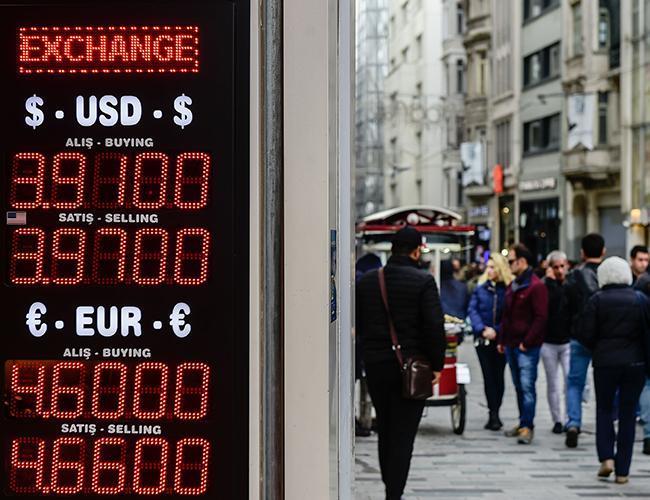Deputy PM Şimşek says problems with US ‘temporary’ amid lira plunge
ANKARA - Reuters

Market fluctuations besetting Turkey are temporary and will pass, including those stemming from the U.S. case against Turkish-Iranian businessman Reza Zarrab, Deputy Prime Minister Mehmet Şimsek said on Nov. 22.
Şimşek was speaking at a conference in Istanbul after the Turkish Lira hit a fresh record low of 3.98 against the dollar, driven partly by strains in ties with the United States over the trial. It eased slightly to 3.96 in the afternoon.
He said the exchange rate was causing inflationary pressure mainly stemming from the loss in the lira’s value, but predicted that inflation would fall to single digits “sooner or later.”
“There have been serious fluctuations in Turkish markets recently. We need to understand this calmly, correctly and without panicking,” Şimşek said in a speech.
“These are temporary … The problems with the United States and the West are temporary,” he added,
He also acknowledged that Turkey has a growing current account deficit problem, while saying “this problem is fortunately at a more manageable level than it was a couple of years ago.”
On Nov. 21, the Central Bank responded to the sell-off with emergency measures to tighten policy, although those have so far failed to shore up confidence. Investors say that rather than tweaking policy the Bank needs a straightforward rate hike.
“The Central Bank’s veiled rate hike yesterday was a step taken to buy time ahead of the Dec. 14 MPC [monetary policy committee] meeting and avoid an interim meeting,” said Reel Kapital Securities deputy research manager Enver Erkan, as quoted by Reuters.
“We do not see this step having a positive impact in the market because it is not a sufficient move. Hence we expect the negative trend in the lira to continue,” Erkan said.
Concerns over Central Bank’s action area
Foreign investors, needed by Turkey to finance its large budget and current account deficits, also have deep concerns about political pressure on the Central Bank.
President Recep Tayyip Erdoğan, who wants lower interest rates to fuel lending and construction, claimed last week that a lack of government intervention in policy had left Turkey saddled with high inflation.
“They are saying that central banks have independence; they told us not to intervene. It came to this point because we haven’t [intervened],” Erdoğan said in a meeting with ruling Justice and Development Party’s (AKP) local heads in Ankara on Nov. 17.
“The Central Bank says it will be such and such as of the end of the year. What happened? How many times you have revised [the inflation forecast], none of the things that you have said came up right. You are on the wrong path,” he added.
The yield on the benchmark 10-year bond rose to 13.08 percent in spot trade on Nov. 21 from 12.68 percent a day earlier. It dipped to 13.01 percent in Nov. 22-dated trade.
















